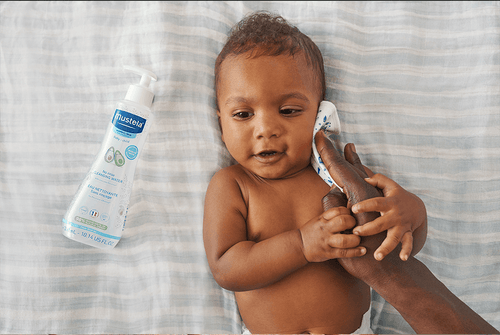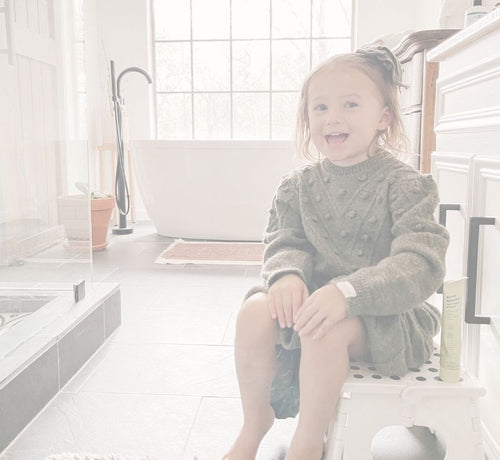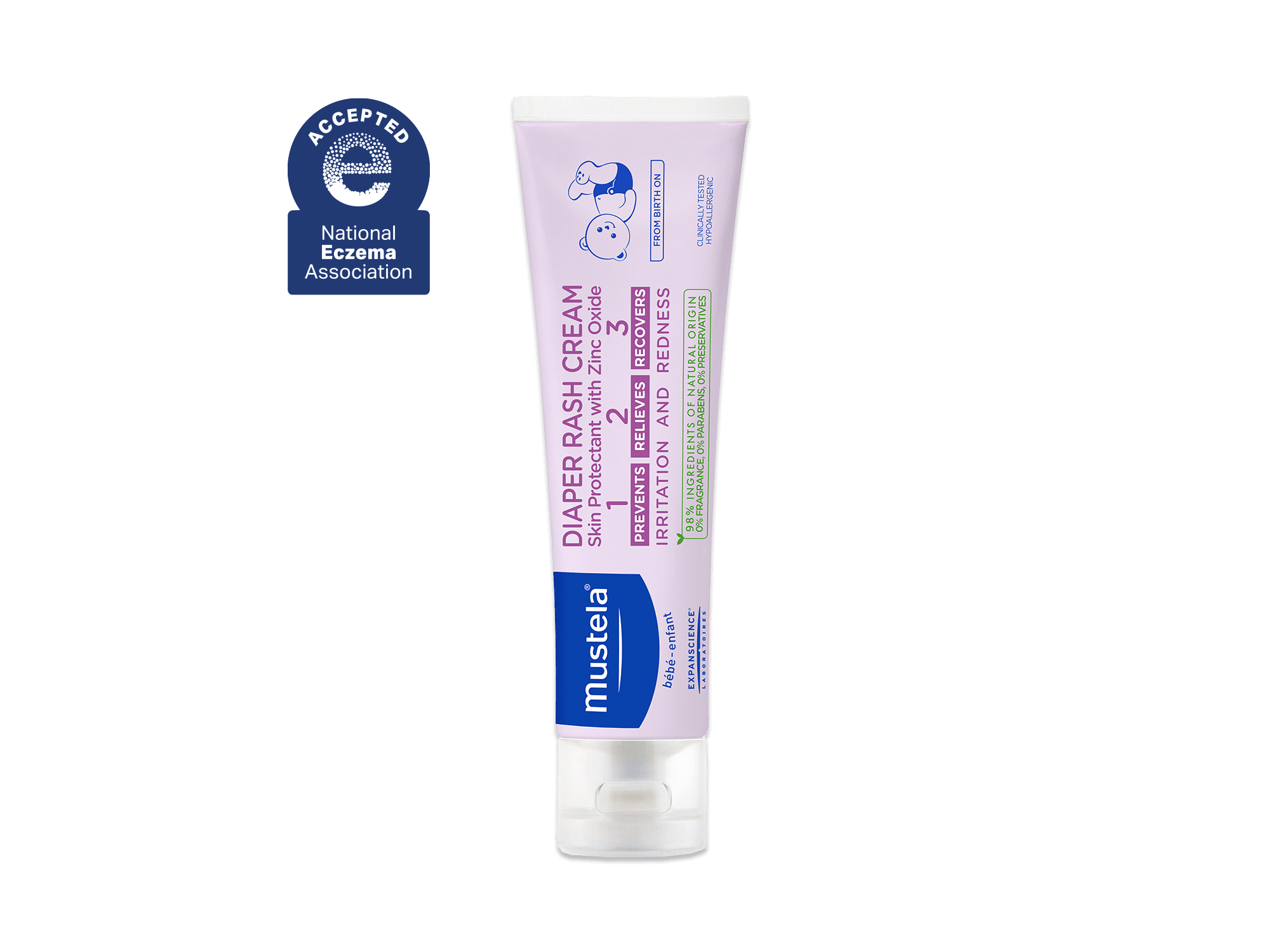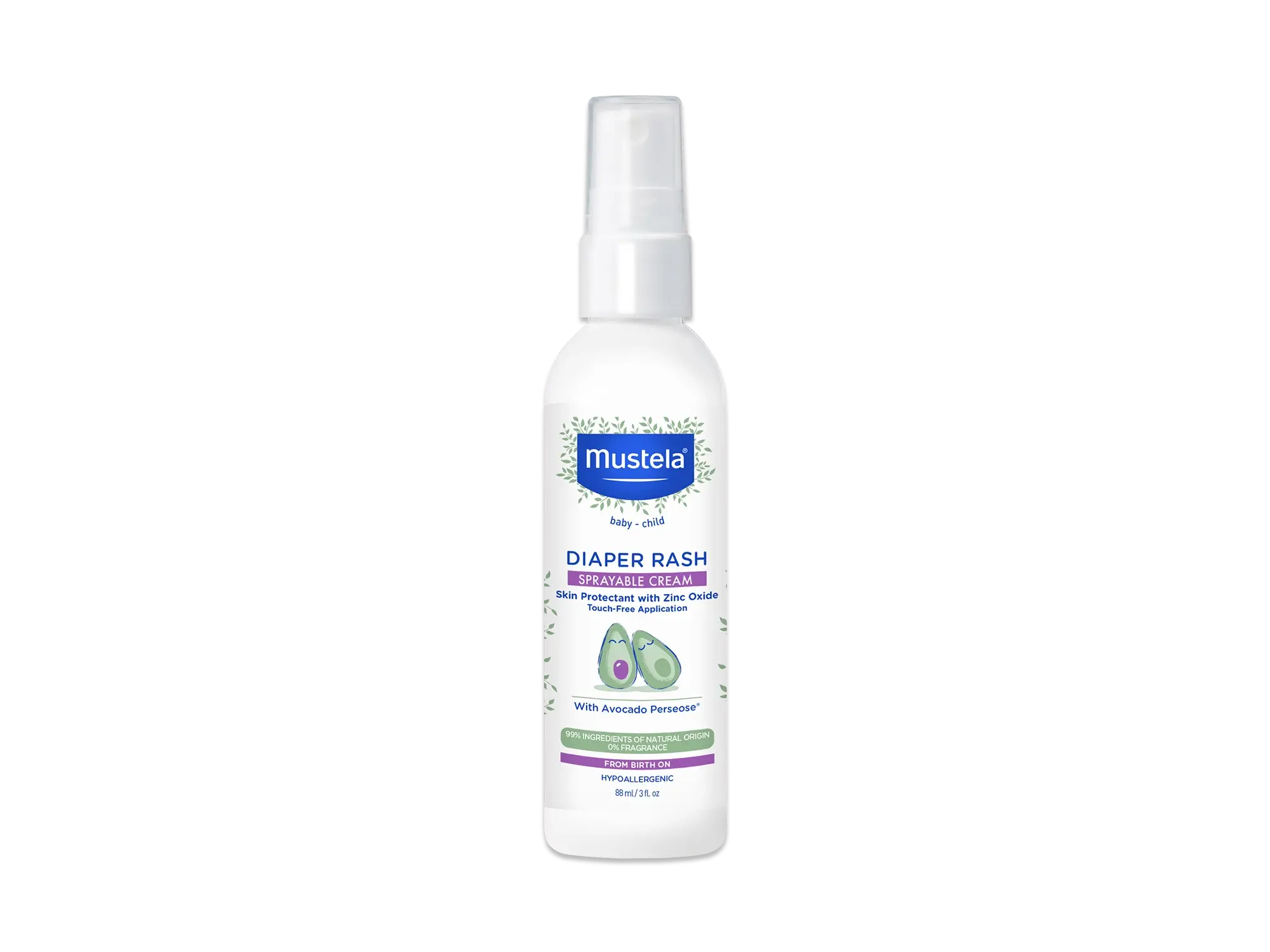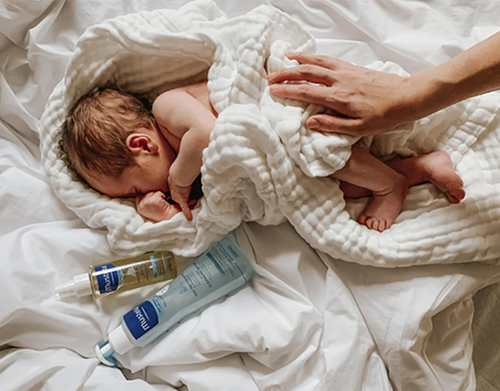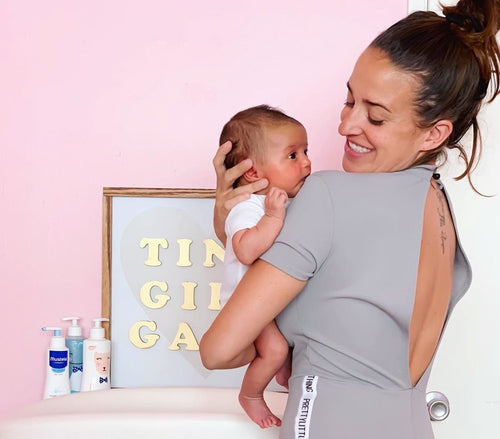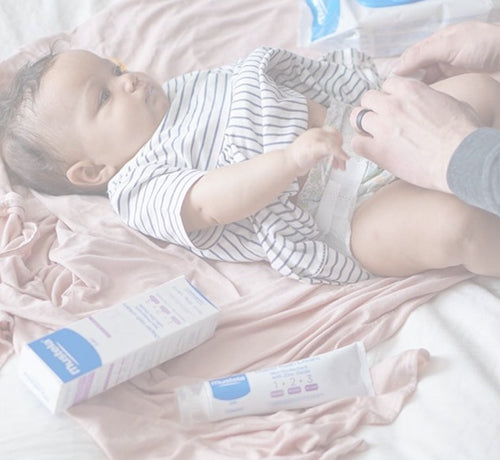By this stage of parenting, you're a pro at diaper changes. You're quick enough to catch your toddler on the run and get them nice and clean again before they get back to playing. But now that your baby isn't little anymore, you might be wondering when to start potty training.
It can be tough to know when the time is right, but there are definite signs that your toddler is ready to learn how to use the potty. So keep an eye out for these 11 things, and you'll be on your way to ditching the diapers in no time.
Table Of Contents
- When To Start Potty Training: 11 Signs To Look For
- 5 Signs You Should Stop Potty Training (For Now)
- When To Start Potty Training: 5 Reasons To Wait
When To Start Potty Training: 11 Signs To Look For

While many kids are ready to start potty training between 18 months and two years, every child is different. Some will be interested in using the potty earlier, while others may not be ready until they're closer to three years old.
The best way to know if your toddler is ready to start potty training is to look for signs that they're developmentally prepared, no matter their age.
Developmentally ready means that they're physically, cognitively, and emotionally ready. You should consider all three of these areas when determining whether a toddler is ready for potty training.
Physically, your child should recognize the sensation of having to go and have enough control over their body movements to get on the potty in time.
Cognitively, they should understand that peeing and pooping happen in the bathroom, not somewhere else. They should also be able to follow simple instructions such as “go potty.”
Emotionally, your child should be able to express themselves and tell you when they need to go or have gone already. In addition, they should be able to stay on the potty for an adequate amount of time without getting too distracted or frustrated.
Let's look more closely at eleven specific signs of potty readiness. If your child exhibits these signs, they may be ready to try potty training.
1) Can Walk To The Potty
You don't want to carry your little one over to the potty every time they have to go. To help potty training go more smoothly, ensure your child can independently walk to the bathroom and get onto their potty.
This way, they can go by themselves when they feel the urge and don't have to depend on you to help them every time. If your child isn’t yet mobile, you should probably hold off for a bit.
2) Shows An Interest In Wearing Underwear Or Toileting
Does your child express interest in using the bathroom? Have they asked about underwear? If so, it's a good sign that they're ready to start potty training.
Along these same lines, your little one might ask you about using the potty or want to watch what you do when you go to the bathroom. Again, these actions indicate that they’re learning what a toilet is and are starting to understand what you do on one.
You might also notice them pointing out their favorite characters on the underwear at the store or mentioning underwear while you’re folding laundry. A creative child in this stage of readiness might even try using a marker to make their diaper fancier, like underwear.
3) Is Able To Communicate Needs
To potty train successfully, your child needs to be able to communicate their needs to you. Do they let you know about their other desires? For example, when they're feeling hungry or thirsty, how do they tell you?
Your child doesn't have to speak to communicate, so don't worry if your child isn't yet verbal. There are other ways they might let you know they need to use the potty, such as making a grunting sound or squatting. You might also notice them pointing to their diaper or pulling it.
If you’ve taught your child some sign language, start using the sign for “potty” when you’re changing their diaper or when you need to use the bathroom. It’s a simple way for children to indicate they have to go, even if they can’t speak.
4) Stays Dry For Longer Stretches Of Time
Babies pee a lot. Their bladder is small, and they haven't yet learned to control when they go. As your child gets older, their bladder grows and so does their control over their bladder. Toddlers eventually learn to hold their urine for extended periods.
If you're noticing that your child can stay dry for two hours or more or is waking up from naps with a dry diaper, they might be ready to try going on the potty.
5) Hides While Pooping
When your child starts to notice the sensation of pooping, they might try to hide it from you. For example, they might go into another room or crouch behind the couch. This behavior is a sign that they're becoming aware of their bodily functions and are trying to keep them private.
Some kids also try to hide while they're peeing. So if you notice your child disappearing for a bit before they come to you with a wet or dirty diaper, start talking to them about how they can learn to pee and poop in the toilet.
6) Tells You They’ve Pottied
When your little one comes up to you and announces that they’ve peed or pooped in their diaper, it might not be what you want to hear. You might wish they'd told you a little sooner so you could have rushed them to the potty.
But the good news is they’re aware of what just happened. And they know that they want to have a fresh diaper again instead of sitting in a wet one.
Those are both essential milestones for potty training. You need your child to recognize their bodily sensations and be able to tell you when they’ve relieved themselves. They also should feel slightly uncomfortable wearing a soiled diaper and want to be changed into a dry one.
7) Poops Regularly
If you’ve been keeping track of your child’s diaper changes, you might have noticed that they poop at roughly the same time every day. They might go first thing in the morning or after lunch.
No matter what time of day is “poop time,” it’s a great sign that their digestive system is working regularly and their body clock knows when it’s time to let it all out.
This is important because if your child isn’t pooping regularly, it can be difficult for them to learn how to recognize the sensation of needing to go. However, when they’re going regularly, you can help direct them to try in the potty when it’s time.
8) Uses Potty-Related Vocabulary
Does your child use words like poop and pee? If they aren't yet talking, do they understand what you mean when you ask if they've pooped?
Kids usually start to pick up on these words between 18 months and two years of age. If yours is using or responding to potty lingo, it's another positive indication that it could be time to start potty training.
9) Can Sit On The Potty
Toddlers aren’t known for their long attention spans. But there's a certain amount of just sitting and waiting involved in successful potty training. Your child should be able to sit on the potty without getting distracted or fidgeting for a few minutes at least.
Even if nothing comes out during those few minutes, just being able to stay in one place and keep their focus is a big step in the right direction.
10) Desires Independence
Kids with an "I can do it myself" attitude are usually the most successful at potty training. If your child is constantly saying "no" to your help or is trying to do everything themselves, they might be ready for this next stage of independence.
Here are some signs that they're becoming more independent:
- Able to get themselves dressed and undressed (or tries to do so)
- Likes to put on their shoes
- Helps pick up their toys
- Engages in an activity for more extended periods
- Wants to help you with household chores
While your child's independence can be bittersweet, you don’t want them to be dependent on you forever. Allowing them to do things for themselves will give them a sense of accomplishment and make them more likely to succeed at this new skill.
11) Follows Basic Directions
Your toddler needs to be able to follow simple directions to transition from diapers to the toilet successfully. For example, can they understand and follow simple commands like "sit down" or "stand up?"
If so, they might be ready to start understanding and following instructions about going to the potty.
Try giving them simple commands, like, "Go sit on the potty" or, "Try to wipe yourself." They’re probably ready if they attempt what you've asked.
Be sure to set them up for success by having your bathroom ready. Since little ones often have difficulty using toilet paper, keep a pack of gentle wipes, like Certified Organic Water Wipes, nearby. These cleansing wipes help keep your toddler's skin clean and moisturized.
You'll also want a step stool so they can easily reach the sink. That way, when you ask them to turn on the water and wash their hands, they'll be able to do the task independently.
5 Signs You Should Stop Potty Training (For Now)
Just because your child displays some (or all) of the signs above doesn't mean potty training will go as planned. There are some situations when you should stop and wait before continuing with potty training.
Let's look at five of the most common ones now.
1) They're Holding Their Poop
Sometimes poop training takes longer than pee training. If your child is scared of pooping in the potty, they could start holding it in. And if they hold it in too long, they'll get constipated.
Once constipation sets in, pooping hurts, and they don't want to poop. It's a vicious cycle that might need medical intervention and some stool softeners.
So if your child doesn't seem to be getting the hang of pooping in the potty, it might be time to put a hold on potty training for now.
2) Your Child Is Struggling With Big Emotions

Potty training can cause lots of emotions. Some kids may feel mad, frustrated, or scared about the process. As long as the two of you can work through these feelings, that’s OK.
But if your little one is struggling under the weight of all the feels, the process could be too overwhelming right now. If that’s the case, it’s OK to hit pause and return to it in a few weeks or months.
While waiting, try reading lots of potty training books and watching some child-friendly potty training videos. These can help your child come to terms with the idea of using the toilet in a more positive way.
3) You Feel Frustrated
Kids aren’t the only ones who feel big emotions during potty training. Parents can get overwhelmed and frustrated, too.
If you feel like the process is taking up all your mental energy and you can’t focus on anything else, it might be time to take a break. It’s also time to put the brakes on potty training if you are frustrated or angry with your child.
When strong feelings arise, a little timeout from potty training could do both of you some good!
4) Accidents Keep Happening
Every kid has accidents during potty training. That’s just part of the process. But if your child has more than a couple of accidents a day, that could be a clear sign they aren’t 100% ready.
Take a step back if you’re tired of cleaning up their wet or messy clothes. Reevaluate how the process is going and ask yourself if there's something else you can do to help.
It might just be that your child needs more time before they can fully understand all the concepts related to potty training.
5) Your Child Refuses To Use The Potty
Some kids refuse to use the toilet. They’ll insist on peeing and pooping in a diaper or pull-up, no matter how long they sit on the potty to try. If your child is doing this, it might be because they're not ready to use the potty yet.
You can try encouraging them to go by sitting with them on the toilet for a few minutes every day, but don't make it a battle. If they don’t want to sit, that's probably a sign it's too soon to potty train, and you can wait a bit longer before trying again.
When To Start Potty Training: 5 Reasons To Wait
Even if your child shows many readiness signs, now might not be when to potty train. Sometimes, life circumstances mean that waiting is the best choice.
That way, your child doesn't start to get the hang of potty training and suddenly has to go back to diapers. To prevent that scenario, here are five reasons to wait.
1) Imminent Life Changes
If any big changes are happening in your child's life, it might be best to wait on potty training. You don’t want them to have to deal with too many new things at once.
Some examples of upcoming life changes that could interfere with potty training include:
- A new baby brother or sister
- Starting daycare or preschool
- A move to a new house or city
Any of these changes introduce stress that could throw off your child's potty training progress.
2) Your Availability
It takes time, attention, and patience to successfully potty train a toddler. So, if you're in a busy season of life, or you'll be away from home for an extended period, it might be best to wait a bit.
However, don't think you have to be around all day for months to successfully potty train your child. You can get them started by dedicating a weekend to the process and then using gentle reminders going forward.
3) Resistance To Using The Toilet
As we mentioned above, if your toddler resists using the toilet, it might be best to wait a while. They must be ready and willing to start potty training before beginning the process.
If they're not interested in using the toilet, try talking to them about it. Is there something about the potty that isn’t comfortable or makes them feel scared? Once you know their feelings, you can help them work through them.
But if your child still seems unwilling to go to the bathroom, it's best to hit the pause button. Try again in a few months and see if their attitude has improved. It’s much quicker to train a willing toddler.
4) An Upcoming Trip
If you're planning a trip away from home, it might be best to wait until after your return to start potty training.
Traveling to a new place is already challenging for toddlers. Don’t make it even harder on them by expecting them to focus on potty training at the same time. The extra pressure could make the process take longer and be even more stressful.
And, honestly, diapers are easier for traveling. It's difficult to be on the road with a toilet-training toddler who announces in the middle of nowhere that they have to go.
It’s not fair to put your little one in a situation where they may have to try to hold it for a while so soon after starting potty training. It’s a recipe for an accident.
It's better to wait until you're back home in familiar territory before beginning the process. That way, your child can focus solely on potty training and not have the added stress of being away from home.
5) Illness
If your toddler is sick or recovering from an illness like the flu, it's a good idea to wait until they feel better before starting potty training.
Potty training can be stressful for a healthy toddler. So, if your little one isn't physically well, the process could become overwhelming. If their body is already in recovery mode, asking them to focus energy on potty training could be too much.
And let's face it, diarrhea and vomiting during potty training is probably the last thing you want to deal with.
It's best to wait until your toddler fully recovers before beginning the process. Then, they can devote their energy solely to learning how to use the toilet.
Patience = Potty Training Success!
Remember every child is different. Just because your neighbor's toddler was fully potty trained by 18 months doesn't mean your child will be, too. Instead of trying at a certain age, pick when to start potty training based on your toddler’s developmental readiness.
You might have to be patient and change a few more diapers, but when you start potty training when your child is ready, it’ll go much more smoothly. Help prepare them for success by stocking your bathroom with child-friendly supplies they can use themselves.
Put easy-to-use Certified Organic Water Wipes near the toilet to help them wipe, and keep some gentle soap, like Mustela Gentle Soap with Cold Cream, at the sink to promote independence in the bathroom.
Happy potty training!

